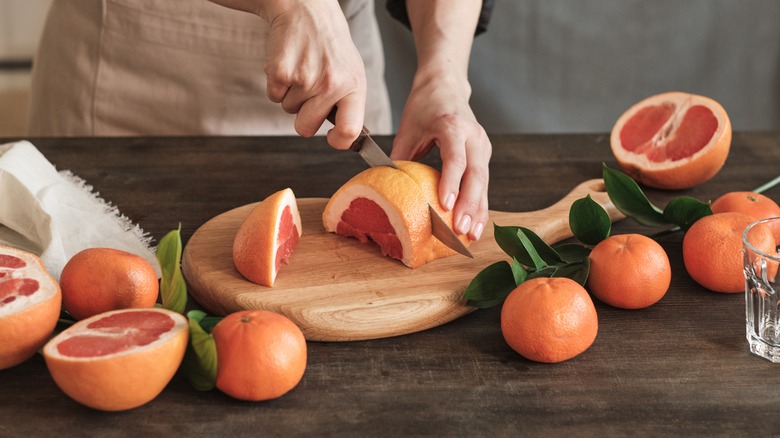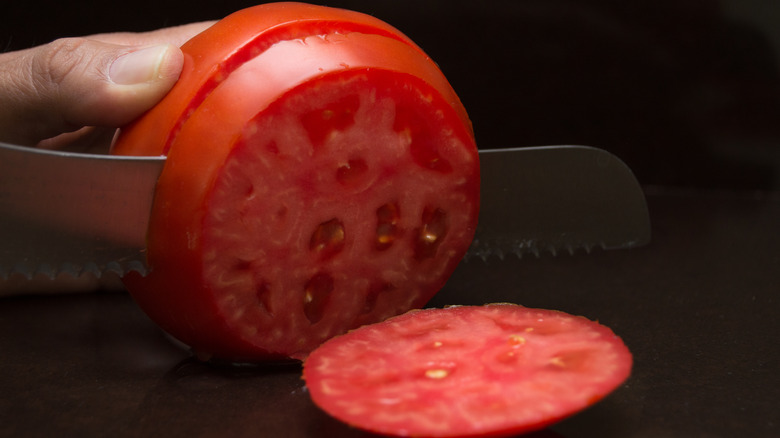Don't Make The Mistake Of Using The Wrong Knife To Slice Acidic Food
We all have our favorite go-to knife; the one that we reach for to cut just about everything. But we are likely making a big mistake when using our best knife for all purposes because, as it turns out, using a good knife when working with acidic foods such as tomatoes and citrus is ruining your blade. You see, cutting acidic foods contributes to the corrosion of its edge, which in turn deteriorates your favorite knife faster. The answer? Use serrated knives whenever you cut acidic foods. According to experts, the grooves of a serrated knife don't need to be super sharp to cut properly, and they also help to cut these foods neatly and faster. A serrated knife will keep tomatoes in shape as it can easily cut through the skin, yielding more even slices and preventing the juice from squeezing out.
Sure, you could go out and buy a special citrus and tomato knife, but try your bread knife or even a solid steak knife if you're not able to make the investment. While serrated knives aren't created equal, what you have handy will definitely do the trick and help you preserve your best knife for other purposes. You can check that your serrated knife is sharp enough to use with these easy tips.
How to use a serrated knife on acidic ingredients
Use your serrated knife to slice tomatoes for sandwiches and caprese salads when it's crucial to slice evenly and neatly. The best way to cut tomato wedges is to set it stem side up on a cutting board, cut out the core with a small serrated knife, then cut the tomato in half. Place the tomato halves cut-side-down to give you a flat and stable surface, then slice the tomato into half moons as thick as you want them. From here, you can easily dice them finely for a pico de gallo, for instance.
To cut citrus there are various methods, depending if you are looking for garnishes or to extract the most juice. Pineapples are also acidic and best cut with a serrated knife for various reasons, especially because it can cut through the tough rind and grip better as you cut the juicy slices, preventing potentially dangerous slip-ups. All in all, investing in a good serrated knife has its merits, and it will help you keep your chef's knives sharper for longer.

